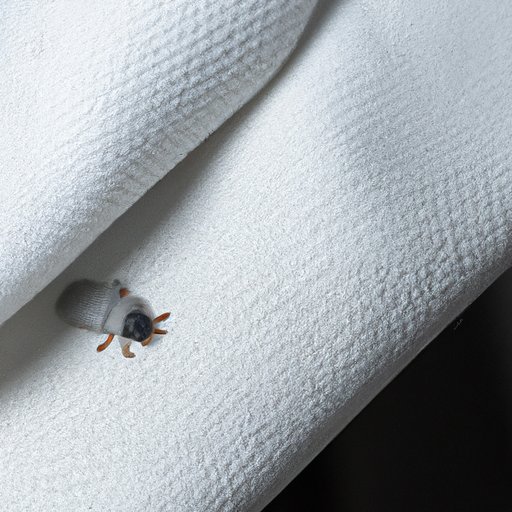
Introduction
Bed bugs are among the most dreaded household pests that can cause both physical and emotional distress. These tiny insects feed on human blood and can be difficult to eliminate. Bed bugs can easily hitchhike their way into your home through luggage, used furniture, and clothing. If you’ve found yourself battling an infestation, it’s important to act fast. In this article, we’ll cover everything you need to know to effectively treat bed bugs and stop them from coming back.
Understanding Bed Bugs
Bed bugs are small, oval-shaped insects that are typically reddish-brown in color. They range in size from about 4 to 5 millimeters in length, roughly the size of an apple seed. Bed bugs are primarily active at night and can be found in a variety of hiding places, such as crevices in bed frames, box springs, headboards, and even electrical outlets. These pests can cause a wide range of problems, from itchy and uncomfortable bites to significant mental distress.
Treating Bed Bugs
When it comes to treating bed bugs, there are several different approaches you can take. Chemical treatments are some of the most popular options for eradicating bed bugs. These treatments use potent insecticides to kill bugs and their eggs. However, there are also several non-chemical approaches that can be just as effective, such as vacuuming and steam cleaning. Freezing items like clothing and bedding can also help to kill any bed bugs or eggs that may be hiding. It’s important to weigh the pros and cons of each method before selecting one that will work best for you.
Preparing the Room for Bed Bug Treatment
Before you begin any treatment, it’s important to properly prepare the room to ensure that the treatment is effective. Steps to prepare the room include removing all bed linens, clothing, and other objects, then inspecting and treating infested items, and sealing them in plastic bags. Additionally, it’s important to avoid spreading bed bugs to other rooms or people, which means washing all exposed fabrics in hot water and using a vacuum with a HEPA filter to clean carpets, floors, and any other surfaces where bed bugs may be hiding prior to treatment.
Alternative Treatments
Although chemical treatments are often the most effective, they’re not the only option available for those looking to get rid of bed bugs. Alternative treatments such as diatomaceous earth, essential oils, and other natural remedies can also be effective when used appropriately. These substances can be used in combination with traditional methods or as standalone options for those wary of using chemicals. However, it’s important to remember that while natural remedies can be effective, they often require more patience and diligence than chemical treatments to get rid of bed bugs completely.
Hiring a Professional Exterminator
Hiring a professional exterminator can be a smart choice if you’re dealing with a severe and stubborn infestation, or if you simply want to avoid the hassle of treating bed bugs yourself. Professional exterminators have access to more advanced treatment methods and equipment than homeowners, and they are trained to identify and eliminate bed bugs effectively. Be sure to choose a reputable company and review the contract carefully before agreeing to service.
Preventing Future Bed Bug Infestations
The best way to prevent future bed bug infestations is to take preventative measures. This includes using bed bug-proof mattress covers, frequent vacuuming, and inspecting used furniture before bringing it into the home. Additionally, practicing good hygiene by washing clothes and linens in hot water, and keeping clutter to a minimum can help to deter bed bugs. Taking these preventative measures can save you time and money in the long run by reducing the risk of future infestations.
Frequently Asked Questions
Here are some of the most frequently asked questions about bed bugs:
How long does it take to get rid of bed bugs?
The length of time it takes to get rid of bed bugs can vary depending on the severity of the infestation and the methods used. Some treatments can be completed in a single day, while others may take several weeks or months to achieve complete eradication.
How do I manage bed bug bites?
Bed bug bites can be managed by washing the bites with soap and water, applying an ice pack to reduce swelling, and taking antihistamines to relieve itching. Severe reactions may require medical attention.
What should I do if bed bugs persist after treatment?
If bed bugs persist after treatment, it may be necessary to repeat the treatment or switch to a different approach. Consult with a professional exterminator to determine the best course of action.
Conclusion
Dealing with bed bugs can be a stressful and challenging process. However, with the right approach, it is possible to eliminate bed bugs from your home permanently. From chemical and non-chemical treatments to preventative measures and hiring professional help, there are many different strategies that can be used to get rid of bed bugs. By taking action quickly and following the steps outlined in this article, you can ensure that your home is bed bug-free and stay that way for years to come.




